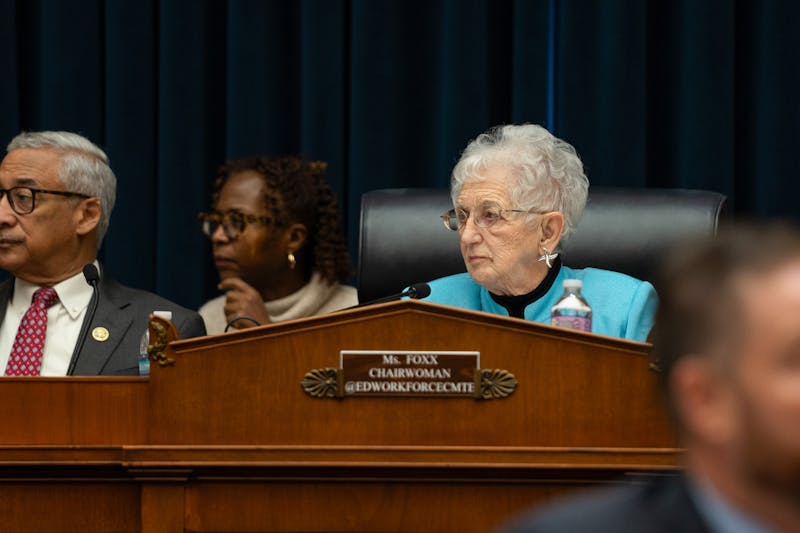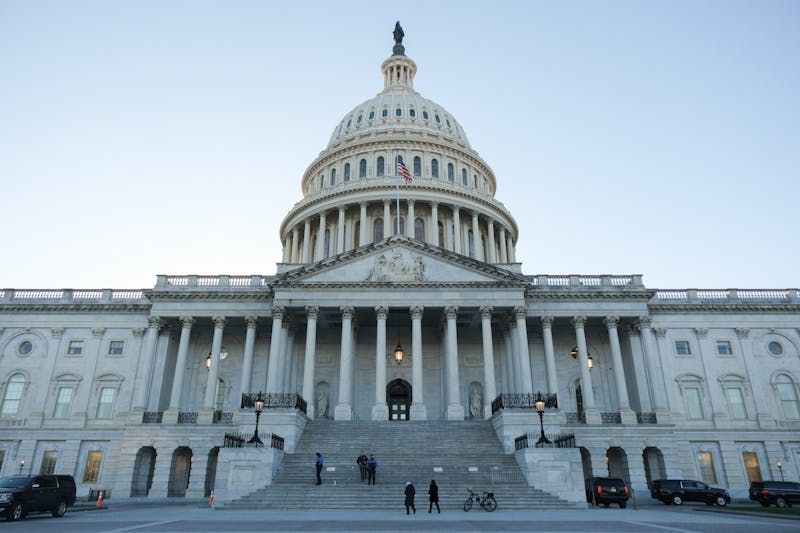
Penn put forth a motion to dismiss 2024 College graduate Eyal Yakoby's amended lawsuit against the University alleging civil rights violations.
Credit: Jada Eible HargroPenn has recently filed a second motion to dismiss and strike the claims in the ongoing, amended lawsuit alleging an insufficient response to antisemitism on campus.
In the May 24 motion obtained by The Daily Pennsylvanian, the University argues that the plaintiffs’ claims should be dismissed because their challenges are “premature,” citing their inability “to meet the standards of controlling precedent” and echoing the rationale outlined in a previous motion to dismiss from April.
The lawsuit was originally filed by 2024 College graduate Eyal Yakoby and College sophomore Jordan Davis and was amended to include Wharton and Engineering senior Noah Rubin and Students Against Antisemitism, Inc. The lawsuit alleges that Penn violated Title VI of the Civil Rights Act of 1964 and subjected students to a “pervasively hostile educational environment,” according to the preliminary statement.
A University spokesperson wrote to the DP that “[t]he University typically does not offer comment on pending litigation.”
“It is quite evident that the hostile environment of Penn’s campus has only gotten worse throughout this school year,” Yakoby wrote in a statement to the DP. “Penn has proven they are incapable of protecting their students. If Penn is unwilling to uphold Title VI, then the court system will.”
The plaintiffs’ latest filing in early May included declarations from Yakoby and Davis and brought forward new allegations that more antisemitic actions have taken place since the Gaza Solidarity Encampment began on campus. It contends that “Penn’s arguments in its motion could hardly be more disingenuous.”
“I have seen and heard first-hand reports of individuals in the encampment, including students, committing acts of violence, intimidating and harassing Jewish students and faculty members, and inciting others to do the same,” Yakoby wrote in his declaration.
In the new motion, the University argued that while the plaintiffs “faulted Penn for not ‘yet’ acting to ‘end the harassment,’” they had taken such action.
“A week earlier, on April 26, 2024, Penn demanded the protesters disband the encampment immediately, and by April 30, 2024, Penn had initiated disciplinary proceedings,” the motion to dismiss reads.
Penn’s motion also refers to Yakoby’s status as a now-graduate of the University.
“Yakoby cannot seek an injunction premised on harm arising from his ongoing enrollment,” the motion reads. “Nor can he pursue his generalized interest in enforcing his policy preferences on behalf of other students … when an injunction would bring him no personally meaningful relief.”
Yakoby testified in front of the United States House of Representatives Judiciary Committee in a hearing entitled “Antisemitism on College Campuses” on May 15, criticizing the University's response to the encampment.
On Thursday, Interim Penn President Larry Jameson shared the final reports from the University Task Force on Antisemitism and the Presidential Commission on Countering Hate and Building Community.
The report from the task force included several recommendations for the University and specified the time frames for each initiative. The recommendations from the task force included that the University should clarify its position on boycotting, divestment, and sanctioning.
“We recommend that the University re-issue a clear statement on its opposition to divestment, sanctions or boycotts against Israel, the most recent of which was made by then President Gutmann in 2011,” the group wrote.
The group also suggested that the University clarify its open expression policies.
“The Task Force underscores our recommendation that the University review existing policies governing student, faculty, and staff expression and conduct to ensure that all policies are consistent, clear, transparent, reflective of Penn’s values, and equitably applied — especially in incidents of antisemitism,” they wrote in the report.
The Daily Pennsylvanian is an independent, student-run newspaper. Please consider making a donation to support the coverage that shapes the University. Your generosity ensures a future of strong journalism at Penn.
Donate








